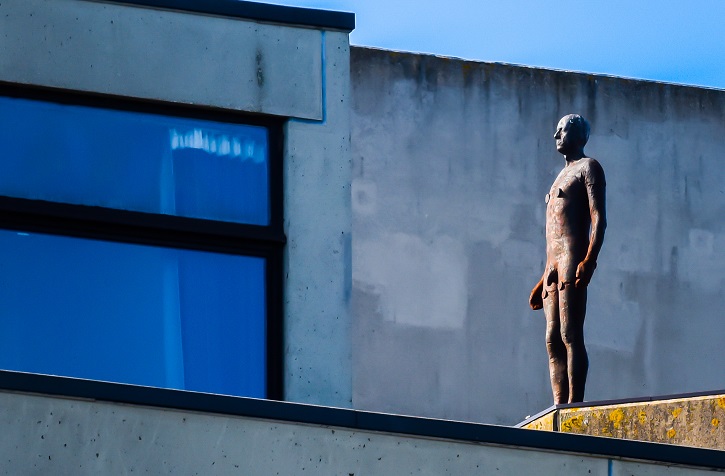Robert Jones is a strategist at Wolff Olins and professor of Brand Leadership at UEA. He writes that a time of great crisis can spark positive change and this pandemic will be the catalyst for a completely new kind of 'emotionally intelligent, organic, constantly morphing' brand – the conscious brand.

I both teach about, and work in, branding – one of the most powerful commercial forces on the planet. By ‘brand’, I mean an organisation that doesn’t just sell something but also means something to people. Think of Apple or IKEA or TikTok – or even the NHS.
Throughout history, pandemics have accelerated change, and the Indian author Arundhati Roy has written that this pandemic should be a portal to a better way of doing things. So what does this mean for brands? Deep in the crisis, we all live in a fug of uncertainty, with an undertow of anxiety. Our mood hovers between holiday and calamity. So it’s hard to get a clear head. But here’s what I think is happening.
The crisis has shown us how tech can help us talk, stay in touch, work together, learn, experience art, consult a doctor - all online. It’s speeded the move from cash to digital payment. It has liberated us from commuting, made business travel seem unnecessary. Online, we’ve seen geography almost obliterated - it’s as easy to work with colleagues on another continent as in the next room. Schools and universities adopted online teaching over a weekend, having been wary of it for a decade.
At a deeper level, individualist values have shifted rapidly into more collective values. In a crisis, we help each other. We’ve rediscovered the idea of family and neighbourhood. In the most individualistic cultures globally, here’s a new sense of solidarity – and a massively bigger role for the state – accelerating a long-term reaction away from the extreme individualism and corporatism of the last thirty years. Many companies have shown this sense of solidarity, and some have postponed paying dividends, accelerating a long shift from shareholder to stakeholder capitalism. We’ve had to find alternative pastimes to going shopping, shifting away not just from physical stores, but from consumption itself.
After the crisis, some habits will bounce back. But underlying mindsets will see a lasting change. So the crisis is changing how we live and, in a way, why we live. All this will give rise to a new kind of brand: the conscious brand.
By which we mean, firstly, conscientious: organisations with a strong sense of responsibility. This is much deeper than the old fig-leaf of ‘corporate social responsibility’. Not corporations exerting power, but citizens playing their role among all the other citizens of the world. Not amoral legal fictions, but ethical beings. Not simply employing staff (or contractors), but helping their people grow. Not selling to consumers, but convening citizens. Not just supplying individualistic desires, but forging a sense of solidarity. In many cases, they’ll aim not to stimulate consumption, but to reduce it. Rather than enabling me to do something (like a platform brand), they’ll enable us to change something.
But the conscious brand isn’t just responsible, it’s also responsive. Conscious beings are alive, awake, aware and self-aware. They’ll adapt instantly to changing needs and moods among their customers and employees. They’ll be not slick, corporate and mechanistic but emotionally intelligent, organic, rough, unfinished, constantly morphing, and even able to laugh at themselves. They are organisations not with a contrived ‘purpose’ but with an organic spirit. Conscious beings learn over time, and so will conscious brands, supported by machine learning. They will be places where knowledge is shared – in fact, ‘conscious’ literally means ‘knowing together’.
There are plenty of brands aiming to be more responsible. Think of the Swedish energy business Vattenfall, setting out to help us all live fossil-fuel-free within a generation. In the last few weeks, brands like AT&T, Tesco and eBay have swung into action, supporting testing stations, feeding health workers and distributing personal protection equipment. In another dimension, a brand like Wikipedia shows the potential of collective learning.
But few brands have yet adopted a more humble, less corporate, more responsive way of being – maybe we’re seeing it first in the political style of the leaders of Finland and New Zealand. The race is therefore on to be the first fully conscious brand.

:focus(1741x1757:1742x1758))